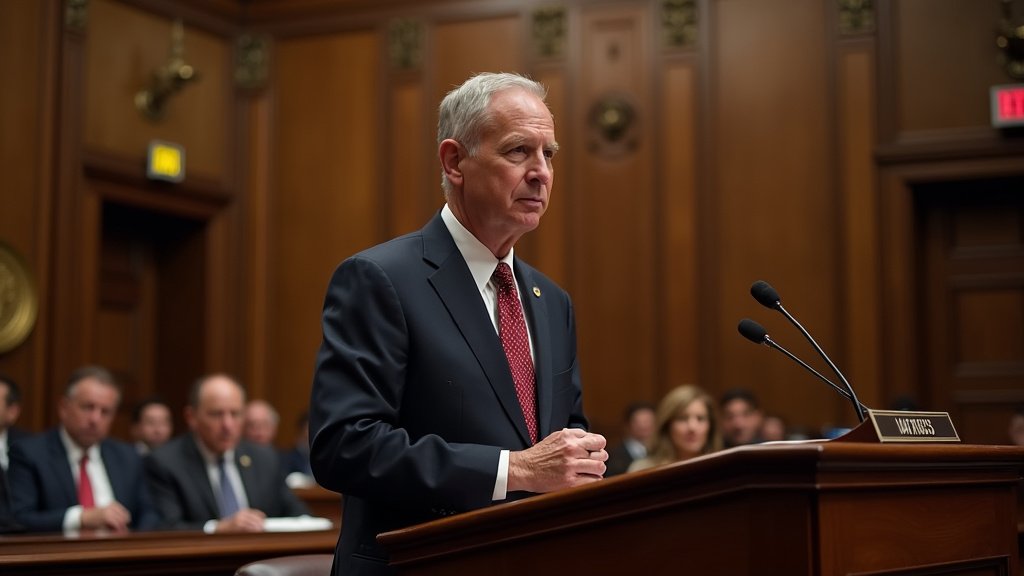The Texas Capitol buzzed with activity on November 14, 2025, as University of Texas President Jim Davis and other university officials appeared before joint House and Senate committees to discuss the complex landscape of civil discourse and free speech on college campuses. The highly anticipated hearing focused on the implementation and implications of two significant pieces of legislation: Senate Bill 37, which reshapes university governance, and Senate Bill 2972, which imposes new restrictions on campus expressive activities. This trending news event highlighted the ongoing tension between legislative mandates aimed at ensuring order and academic freedom.
Committee Formation: Responding to Campus Tensions
The formation of the House and Senate Select Committees on Civil Discourse & Freedom of Speech in Higher Education was directly prompted by the September 2025 assassination of conservative activist Charlie Kirk. Lawmakers cited reactions to Kirk’s death on some college campuses—which some perceived as celebratory or mocking—as evidence of a broader decline in civil discourse and an increase in hostility and intimidation. State Representative Terry Wilson, a co-chair of the House committee, stated that “[f]reedom of speech is not the freedom to threaten, harass or disrupt,” underscoring the legislative body’s desire to enforce order alongside expression. The committees aim to examine bias, discourse, and freedom of speech across Texas’s public higher education institutions, ensuring they foster open dialogue and do not discriminate against students or faculty based on their beliefs.
Legislative Pillars: SB 37 and SB 2972
At the heart of the legislative review are two key bills passed earlier in the year. Senate Bill 37 introduces sweeping changes to the governance of public higher education in Texas. It significantly increases oversight by university governing boards over curricula, faculty hiring, and academic programs, requiring them to be reviewed for alignment with workforce needs and potentially based on return-on-investment metrics. The bill also curtails the authority of faculty senates, redefining them as strictly advisory bodies and granting governing boards final decision-making power. An Office of the Ombudsman is established within the Texas Higher Education Coordinating Board to investigate compliance with state mandates.
Senate Bill 2972, often referred to as the Campus Protection Act, revises regulations on expressive activities at public universities. The law, which took effect in the fall 2025 semester, restricts these activities primarily to enrolled students and employees, potentially limiting access for the general public. Among its most debated provisions are bans on expressive activities between 10 p.m. and 8 a.m., prohibitions on encampments, restrictions on amplified sound and certain instruments during the last two weeks of the academic term, and requirements for protesters to present identification. Lawmakers indicated that the bill sought to provide clear rules for managing protests, particularly in response to disruptions experienced during the spring 2024 semester.
UT’s Stance: Balancing Expression and Order
University of Texas President Jim Davis, in his testimony, outlined the university’s commitment to upholding free expression while emphasizing the necessity of maintaining order. He identified campus speech, classroom speech, and inter-personal conduct as key areas of focus. Davis affirmed the university’s support for political speech on campus but stressed the importance of “proper conduct” and a “clear expectation of order” during expressive activities, deeming the “heckler’s veto” unacceptable. He further clarified that while “hate speech” is constitutionally protected, hateful conduct is not. Regarding classroom speech, Davis noted that students also possess academic freedom, pointing to the university’s recently issued academic integrity statement. Amanda Cochran-McCall, UT Austin’s general counsel, explained that restrictions on public involvement in protests were implemented in response to disruptions caused by “outside agitators” during anti-Israel demonstrations in 2024.
Legal Challenges and Academic Freedom Concerns
The implementation of SB 2972 has already encountered significant legal hurdles. On October 14, 2025, a federal judge issued a preliminary injunction temporarily blocking key provisions of the law, including the overnight ban on expressive activities and restrictions during the final weeks of the semester. The judge ruled that these measures likely violated First Amendment rights, famously stating, “The First Amendment does not have a bedtime of 10:00 p.m.” The ruling indicated that the state had failed to demonstrate that the restrictions were narrowly tailored to serve a compelling governmental interest.
Beyond the legal challenges, academic freedom advocates have voiced concerns about the broader implications of SB 37 and SB 2972. They argue that the increased oversight and limitations on faculty governance and student expression could shrink the space for shared governance and potentially chill legitimate speech. The restructuring of faculty senates and the expanded authority of governing boards raise alarms about the future of academic independence and the traditional role of faculty in university decision-making. As Texas higher education navigates these new regulations, the dialogue between lawmakers, university leaders, and advocacy groups remains active.
Looking Ahead
The November 14, 2025 hearing represents a critical juncture in the ongoing effort by Texas lawmakers to shape the environment of its public universities. As the implementation of SB 37 and SB 2972 continues, and as legal challenges progress, the University of Texas System and its institutions face the complex task of balancing legislative expectations with their foundational commitments to free inquiry and academic freedom. This trending Texas news story underscores the dynamic and evolving nature of free speech debates in higher education across the nation.






